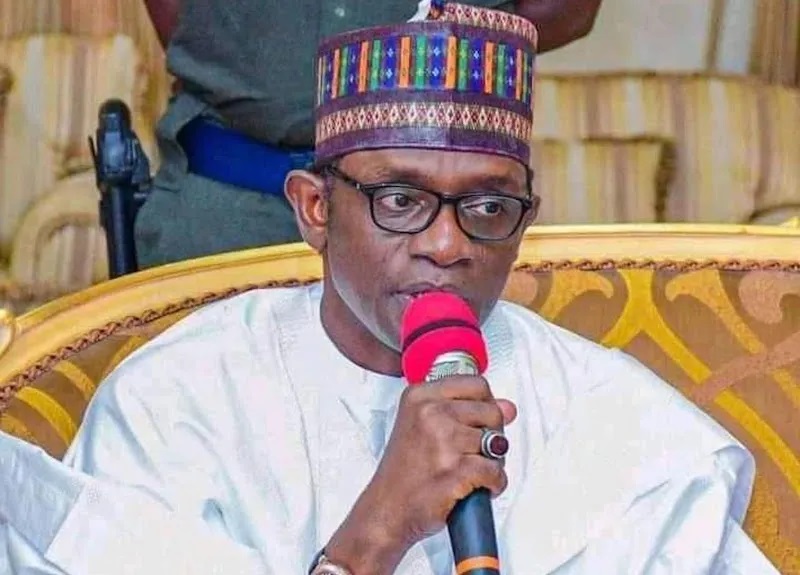The upcoming Medium Term Budget Policy Statement (MTBPS) is causing “rising panic” in South Africa, as the country grapples with weak economic growth, lower-than-expected tax revenues, and the need to reduce public spending. The concern is particularly evident in the healthcare sector, as anticipated budget cuts threaten the already fragile and understaffed public healthcare system. With only one nurse for every 224 patients and over 5,000 unfilled nursing positions, the system is already struggling due to funding constraints.
In times of economic adversity, difficult decisions must be made, and it may be tempting for fiscal policymakers to slash public health spending. However, it is essential to consider the impact of these decisions on the people and their constitutional right to access healthcare. Neglecting this consideration in the MTBPS could worsen the hardships faced by the country.
Austerity measures have been a recurring theme in South Africa’s economic outlook, affecting the healthcare system. Over the past decade, the country’s economic growth has been disappointing, dropping from 2.3% in 2013 to 0.1% in 2023. In response, the National Treasury has implemented cuts to social spending, including healthcare. As a result, public health is receiving fewer resources in real terms, with the government spending more on debt-servicing than on healthcare. Additionally, the allocation for healthcare remains stagnant despite inflation, exacerbating the strain on the already stretched resources.
These budget cuts come at a time when the demand for public healthcare services is projected to increase. Currently, approximately 84% of the population relies on the public health care system, a number that is expected to grow due to population growth and rising unemployment. Unfortunately, the spending per healthcare user has been decreasing over the years, falling below R3,900 by 2024/25. This decline in healthcare spending puts additional pressure on an already burdened system.
The implications of budget cuts also extend to healthcare staffing. Despite a minor increase in the public sector wage bill for the 2023/24 budget, a hiring freeze has been imposed for the rest of the financial year, with no further allocations towards personnel expenditure. This freeze disregards the Department of Health’s projection that an additional 96,586 health workers are needed by 2025. The consequences of these staff shortages are dire, with hospitals like Chris Hani Baragwanath Hospital facing significant staffing challenges. The underpaid and overworked nurses have resorted to pooling funds to provide basic necessities for patients. The strain on healthcare workers leads to suboptimal patient care and increases the risk of medical errors, resulting in higher medico-legal claims for health departments.
Budget cuts in the healthcare sector disproportionately affect women, particularly due to the higher risk and prevalence of HIV among them. Women also have higher and different health needs, including reproductive and maternal health. With women-led households being 40% poorer and higher rates of unemployment among women, they rely heavily on the public health system. Therefore, budget cuts not only impact healthcare but also exacerbate gender inequities in the country.
To address the challenges in South Africa’s public health crisis, a human rights-based budgeting approach is crucial. Fiscal policy must be aligned with the realization of constitutionally guaranteed human rights. Incorporating human rights impact assessments into budget policy can ensure that resources are allocated in a way that protects the right to access healthcare for all. Additionally, a gender-responsive budget is needed to prevent further gender inequities in healthcare. Policymakers should collect gender-disaggregated data and establish indicators and benchmarks on gender to promote equitable funding allocation.
To overcome fiscal constraints, alternative approaches should be explored, such as addressing revenue losses from corporate tax abuses like illicit financial flows (IFF) and base erosion and profit shifting (BEPS). Implementing beneficial ownership registries and strengthening the capacity of South African Revenue Services (SARS) to investigate corporations involved in IFF and BEPS can help curb profit shifting and generate additional revenue.
In the face of difficult trade-offs, the upcoming MTBPS must prioritize the constitutional right to healthcare for all in the country. It is crucial to consider the impact of budget decisions on the public, especially the most vulnerable. Public engagement and consultation can contribute to more equitable fiscal expansion alternatives, ensuring the protection of South Africa’s fragile public health system from resource scarcity.
By Lencoasa, Budget Researcher at SECTION27, and Brown, Director of the Alternative Information and Development Centre and member of the Budget Justice Coalition.



